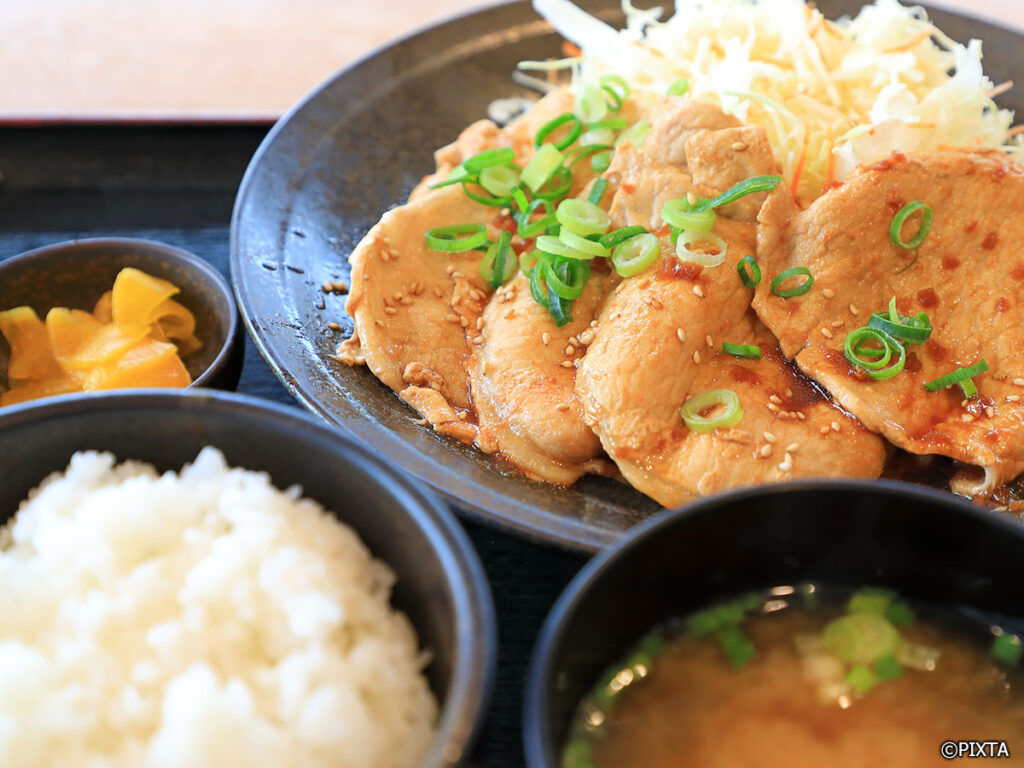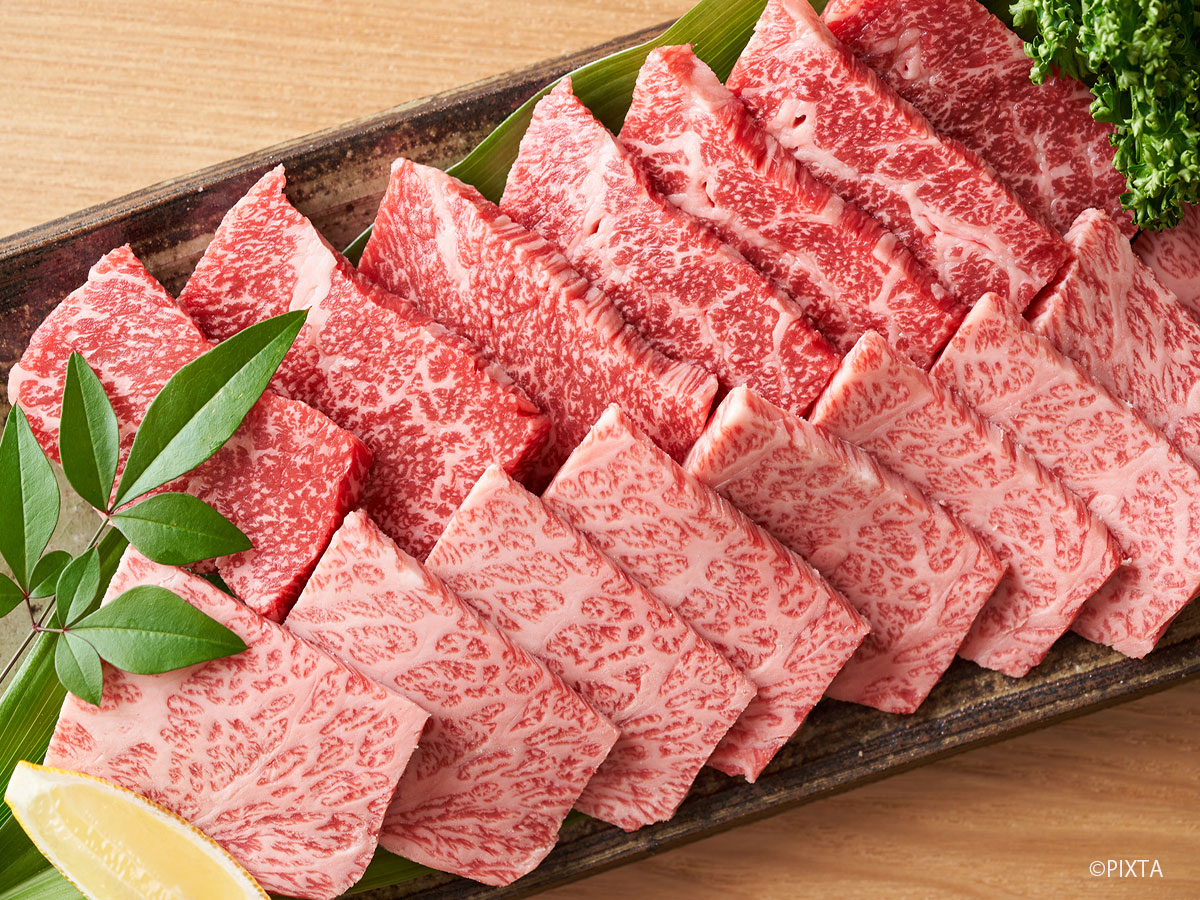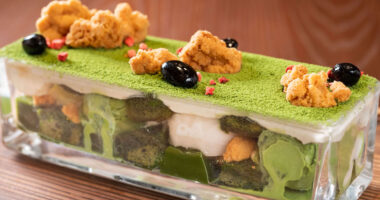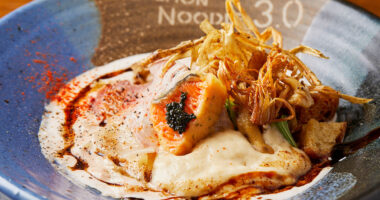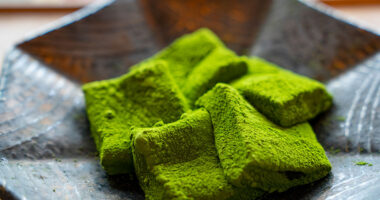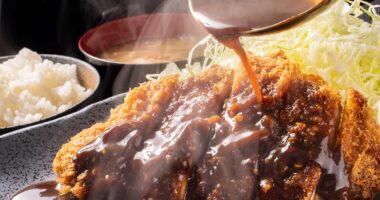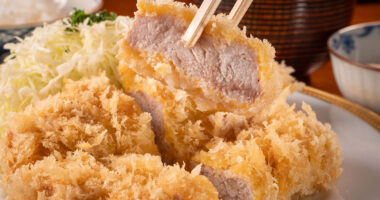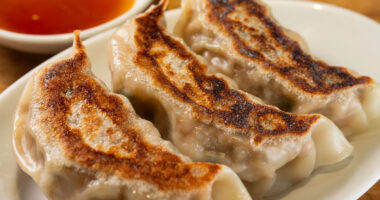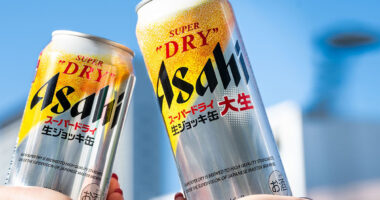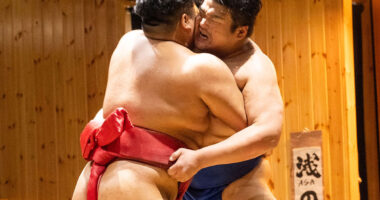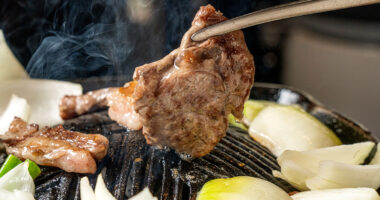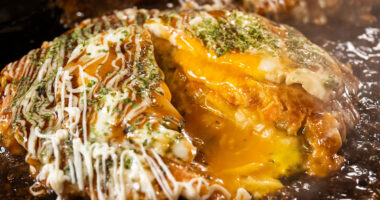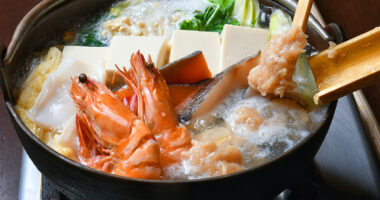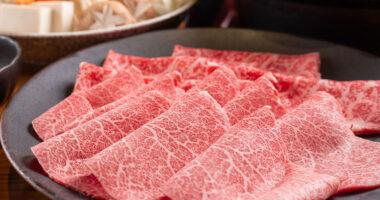Diving into the seemingly ordinary aspects of a culture often unveils extraordinary insights. This is especially true when it comes to exploring Japanese dining culture, where one encounters the concept of 定食 teishoku, the traditional set meal. Teishoku is emblematic of the Japanese eating experience. By understanding its structure and components, we gain an authentic glimpse into the concepts of balance, nutritional harmony, and dining etiquette which are representative of Japanese culinary philosophy.
What Is Teishoku?
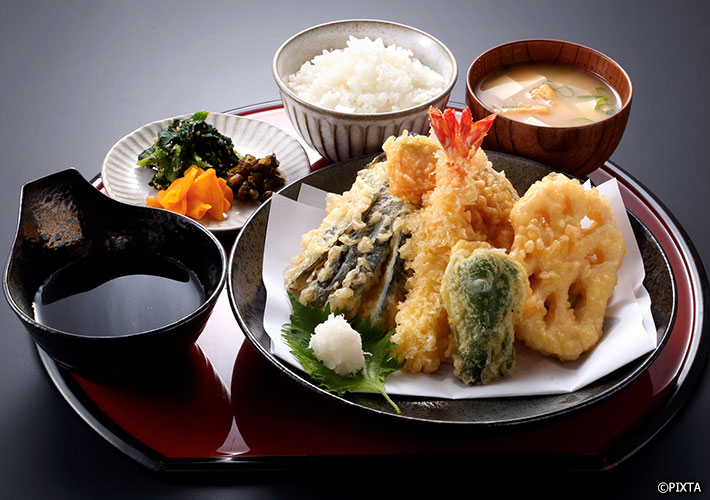
A teishoku set meal featuring tempura and dipping sauce, pickles, rice and miso soup.
In its ideal form, a teishoku is a complete, well-rounded meal served on a tray with several components. This format of dining, ubiquitous in Japanese cuisine, typically consists of a main dish, a side dish, a bowl of rice, pickles, and a soup—often a warming bowl of miso, each element contributing to the overall nutritional balance. The main dish often provides protein, the rice contributes carbohydrates, while the pickles and soup supplement with additional nutrients and serve as palate cleansers. Miso soup, a staple component, usually brims with things like tofu, wakame seaweed, and green onions, all steeped in a flavorful dashi broth. The side dishes, or okazu, range from boiled or grilled vegetables, tofu dishes, to small portions of meat or fish, offering a diverse array of flavors and textures.
Although everyday eateries may prioritize quantity and heartiness, the presentation is often as vital to teishoku dining in numerous establishments, particularly upscale ones. They regard seasonality and aesthetics, reflecting the deep-seated Japanese values of harmony and respect for nature.
Where To Get Teishoku
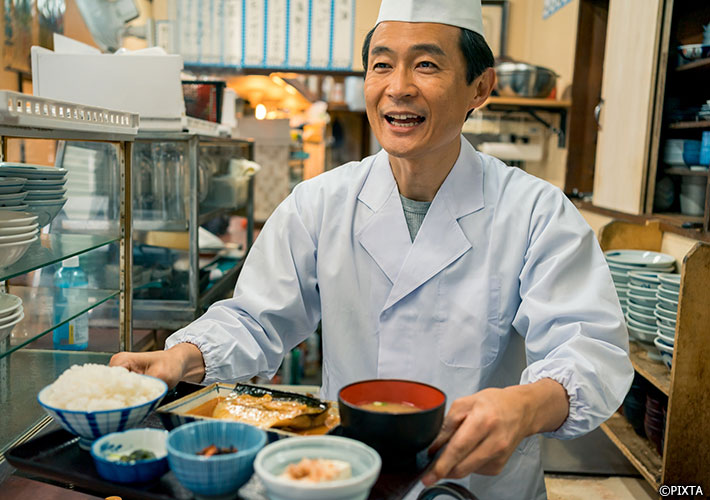
A teishoku meal about to be served at a Japanese-style cafeteria.
Teishoku is widely available across a spectrum of dining venues throughout Japan, from local eateries and family restaurants to formal dining establishments. Japanese-style cafeterias, known as 食堂 shokudō, stand out for their teishoku offerings. These dining spaces are regular haunts for locals and travelers alike, where they can enjoy hearty, home-style meals in a laid-back atmosphere. Many shokudo operate on a pay-first system, often using ticket vending machines that primarily accept cash. Therefore, it’s always good to have some cash on hand when planning to dine at these spots.
Types of Teishoku
Teishoku brings to the fore the diversity of Japanese cuisine, reflecting the country’s regional and seasonal variety. Here are some popular teishoku types:
Fried Dish Teishoku: This includes teishoku featuring とんかつ tonkatsu breaded and deep-fried pork cutlet, 海老フライ ebifurai deep-fried prawns or other deep-fried fish and seafood items, 天ぷら tempura deep-fried seafood and vegetables in a light, crispy batter, and 唐揚げ karaage Japanese-style fried chicken. These are typically served with sides like shredded cabbage, rice, pickles, and soup. You can read more about these items in our in-depth articles on katsu, Japanese fried foods, tempura and karaage.
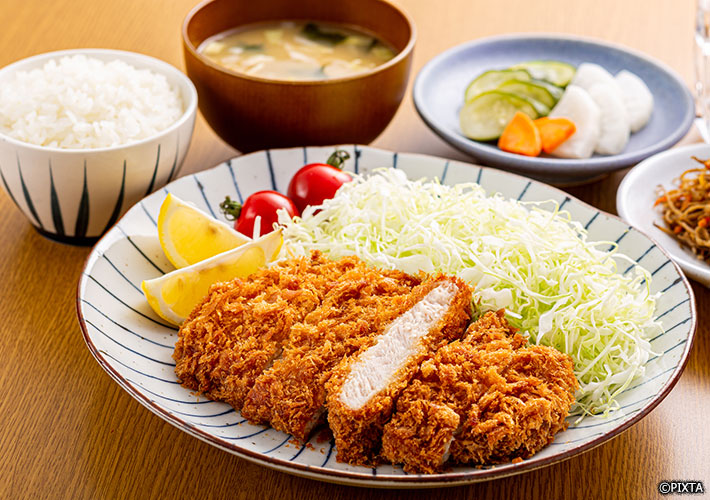
A tonkatsu teishoku set meal.
Grilled Dish Teishoku: When it comes to grilled foods, you’ll find teishoku featuring 焼き魚 yakizakana, grilled fish, with the type of fish varying based on the region and season, and grilled meat such as 焼肉 yakiniku, usually beef seasoned with a flavorful sauce. For more details, read our in-depth articles on yakizakana and Japanese beef.
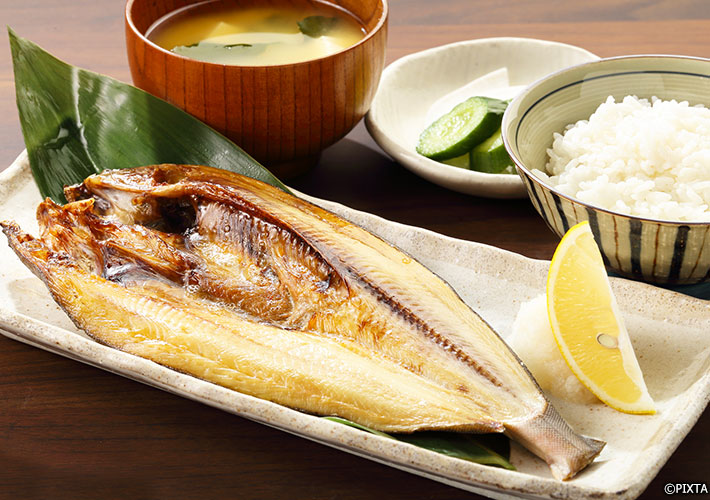
A healthy yakizakana teishoku set.
刺身 sashimi Teishoku: A great way to turn sashimi into a balanced meal, sashimi teishoku features fresh sashimi, accompanied by rice, miso soup, pickles or other side dishes.
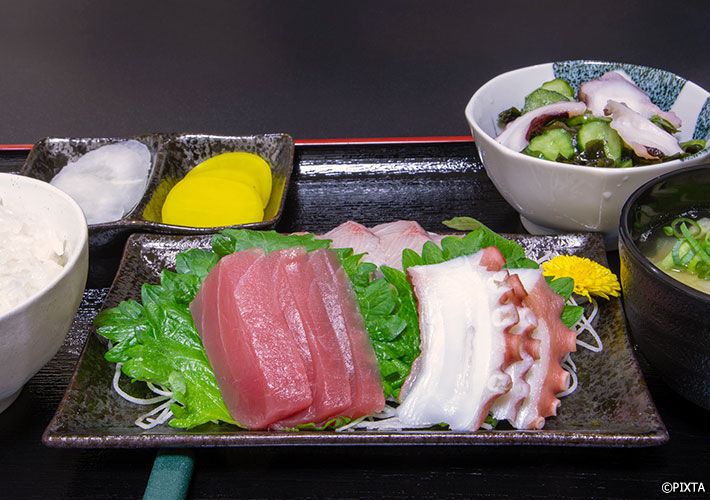
Turn sashimi into a balanced meal by having a teishoku of it.
生姜焼き shōgayaki Ginger Pork Teishoku: This teishoku includes thinly sliced pork cooked with ginger and served with a sweet and tangy sauce.
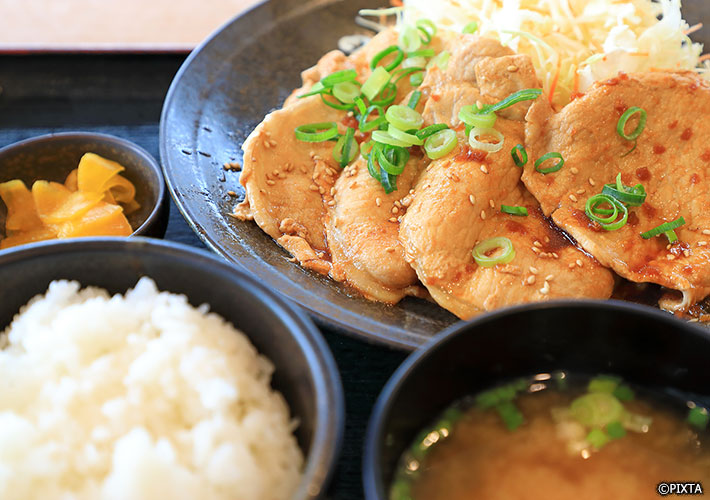
A popular teishoku dish is ginger pork.
餃子 gyōza Teishoku: This set features gyoza, Japanese-style dumplings typically filled with minced pork and vegetables, served with a tangy dipping sauce. Usually a side dish, they take center stage in a teishoku set. You can read more about gyoza in our in-depth article here.
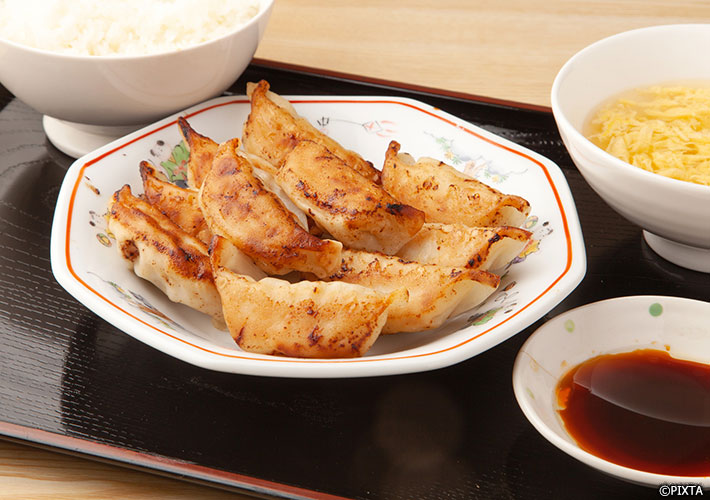
Gyoza lovers will want to order the gyoza teishoku when its available.
ハンバーグ hambāgu Hamburger Steak Teishoku: This is a Western-influenced dish featuring a ground meat patty. You’ll find more information on hamburger steak and other Western-influenced dishes in our article here.
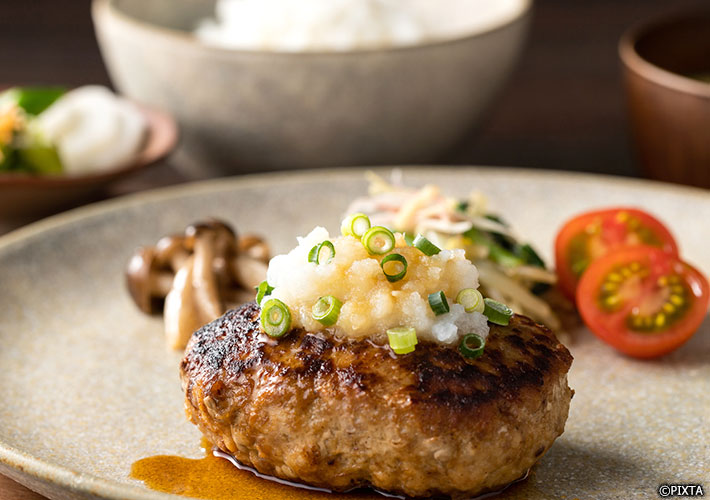
A hamburg steak with grated daikon radish is the centerpiece of this teishoku set.
ラーメン rāmen Teishoku: A more uncommon type, this features a bowl of ramen, sometimes smaller than when ordered a la carte, and served alongside rice, pickles, and sometimes even a side of gyoza. Our article on ramen provides more details on this iconic dish.
丼 donburi Rice Bowl Teishoku: Typically not served with a side of rice, for obvious reasons, this type of teishoku features things like 親子丼 oyakodon, for example, which consists of chicken and egg simmered together in a sweet and savory sauce and served over rice.
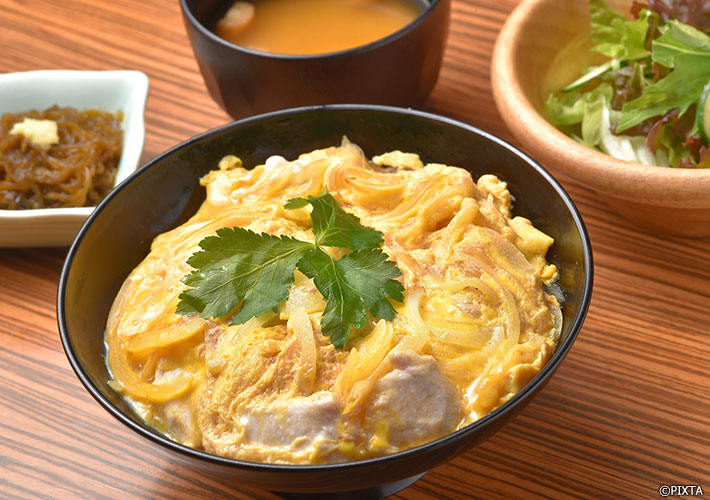
A teishoku set featuring oyakodon.
In addition to these regular items, you may also want to look out for the 日替わり higawari, the daily special, a common practice at many establishments where teishoku sets are served.
Prices for teishoku can range considerably based on the ingredients used and the type of establishment. At a casual eatery or shokudo, a teishoku might cost between 700 to 1,500 JPY. On the other hand, a meal at a more upscale restaurant, especially those featuring premium ingredients such as high-grade fish or wagyu beef, could range from 2,000 JPY to over 10,000 JPY.
Tips For Enjoying Teishoku
When embarking on your teishoku journey, consider experiencing the traditional eating order which is centered on rice. It’s not mandatory, but it’s an authentic way to savor a teishoku meal. Start with a bite of rice, then have a bit of the main dish, followed by some rice again, then a sip of soup, some rice again, then a side dish, cycling in this manner.
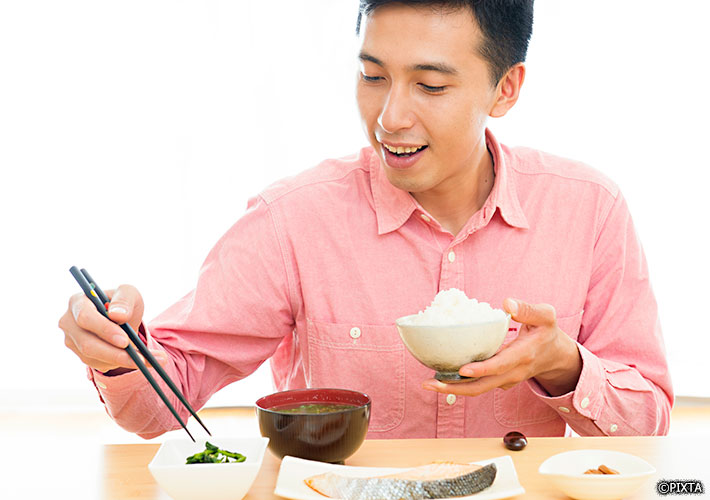
A teishoku is a great opportunity to try out the traditional eating order.
Also, be on the lookout for regional variations. In the Kansai region, for example, instead of pickles, you might find salted or boiled konbu (kelp) being served. In Okinawan cafeterias, individually ordered sides are often automatically turned into teishoku sets, complete with rice and side dishes. Visitors unfamiliar with the practice sometimes end up with more food than they can handle.
Finally, when you’re interested in trying a teishoku in Japan, look out for the kanji 定食 for teishoku and 食堂 shokudō for Japanese-style cafeteria. These may be displayed in the name of the establishment and on menus or banners outside.
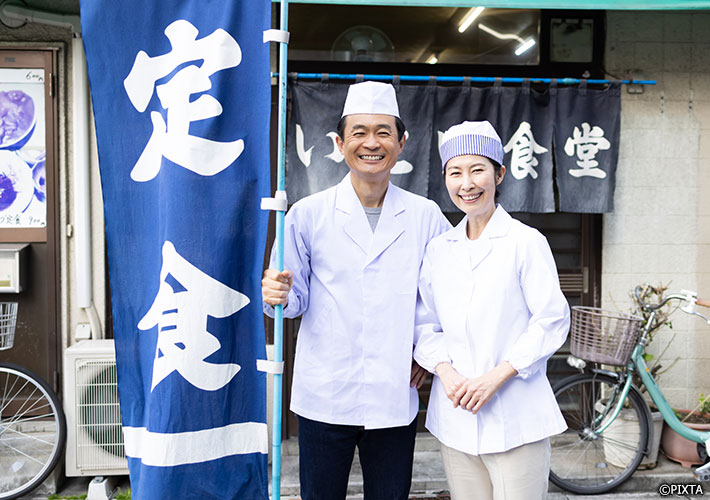
If you see 定食, you know you’ve come to the right place…
In sum, teishoku represents an authentic, balanced, and convenient way of enjoying Japanese cuisine. More than just a meal, teishoku is an immersive cultural experience that feeds not just the body, but also provides insight into the Japanese approach to food. So, the next time you’re in Japan, why not sit down to a teishoku meal? It promises to be a culinary journey that’s both delicious and deeply rooted in tradition.
